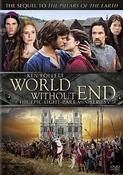Genetic Impact of the Black Death
The Black Death, one of the deadliest pandemics in European history, killed nearly half the population of Europe during its seven year reign. Recent improvements in archaeological and forensic research methods have shed light on the plague’s causes and long-reaching consequences.
DNA analysis of plague victims has revealed the culprit pathogen to be a strain of bacteria called Yersinia pestis, a strain of bacteria that is still active today. Since this discovery, people have wondered why this outbreak was so severe and why it hasn’t resurfaced as virulently since. The assumption, until recently, has been that this was a particularly aggressive strain of the bacteria. However, in a May 7th article published in the journal PLOS ONE, University of South Carolina anthropologist Sharon DeWitte suggests that the reason may not lay with the bacteria at all.
“Genetic analysis of 14th century Y. pestis has not revealed significant functional differences in the ancient and modern strains," DeWitte says. "This suggests that we need to consider other factors such as the characteristics of humans in order to understand changes in the disease over time."
By examining the skeletons of plague victims and survivors, DeWitte’s team made several discoveries. The pre-plague life expectancy in 14th century England was about 35 years. Post-plague populations could expect to live into their 70s and 80s. Survivors and their descendants, in addition to longer life, could also expect a healthier life. To explain these findings, Dewitte has hypothesised that the post-plague populations were a genetically heartier population.
Websites:
- New Study Sheds Light on Survivors of the Black Death
- 5 Signs Humans are Still Evolving
- Double Immunity
Nonfiction Books:
African Exodus: the Origins of Modern Humanity, Christopher Stringer and Robin McKie
A crash course in the latest theories of human evolution, drawing on fossil and genetic evidence to explain the emergence of modern humans out of Africa less than 100,000 years ago, this book shows that the apparent racial distinctions of modern humans are merely geographical variants.
The Black Death, Philip Ziegler
An historian's account of the origins, nature and extent of the widespread destruction caused by the plague of the mid-14th century.
Encyclopedia of Plague and Pestilence: From Ancient Times to the Present, George Childs Kohn, editor
This volume provides descriptions of 700 epidemics, listed alphabetically by location of the outbreak. Each entry includes when and where a particular epidemic began, how and why it happened, who it affected, how it spread and ran its course and its outcome and significance.
Evolving: the Human Effect and Why it Matters, Daniel J. Fairbanks
The author uses evidence from archaeology, geography, anatomy, biochemistry, radiometric dating, cell biology, chromosomes and DNA to establish how we evolved and are still evolving. He also explains in detail how health, food production and human impact on the environment are dependent on our knowledge of evolution.
The Great Mortality: An Intimate History of the Black Death, the Most Devastating Plague of All Time, John Kelly
Kelly's book paints a vivid picture of what the end of the world looked like, circa 1348 and 1349. Interweaving a modern scientific analysis with an examination of medieval medicine, superstition and bigotry, The Great Mortality achieves an air of immediacy, authenticity and intimacy rarely seen in literature on the plague.
A Harvard evolutionary biologist presents an engaging discussion of how the human body has evolved over millions of years, examining how an increasing disparity between the needs of Stone Age bodies and the realities of the modern world are fueling a paradox of greater longevity and chronic disease.
Find this article at http://thelibrary.org/blogs/article.cfm?aid=3355&lid=0
_88x125.jpg) Black Death
Black Death_88x125.jpg) The Human Family Tree
The Human Family Tree World Without End
World Without End